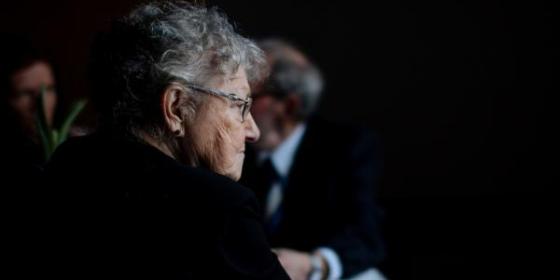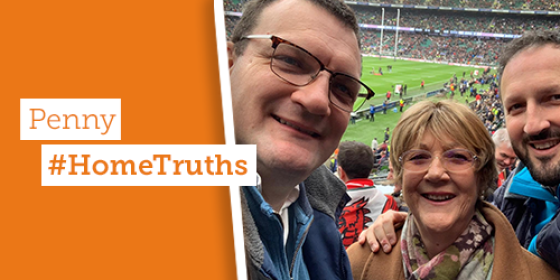 Time to say goodbye
Time to say goodbye
When my husband Rob died it was a shock. He was poorly, but we didn’t think he was going to pass away. He had rheumatoid arthritis and high blood pressure, but nothing which seemed terminal as long as he was looking after himself. He was feeling a bit ill, and then he died in the night. He always wanted to pass away in his home, so it was great for his wishes, but it was horrible for me.
I didn’t call my daughter as she was at work and I was worried about her driving home. The doctor took hours to come. I had called at 8:30am and he came at 2pm – that in itself was distressing. People had come over before then; it made it worse for me when everyone came here. His daughter came, her husband and her sons. I ended up with five people here… I just wanted them to go!Then the funeral director took Rob away, and I asked for everyone to leave me alone. I cuddled the cats, had a cry and fell asleep for a bit.
Before a funeral there is so much to do – getting a death certificate, having to go to town to sort things, dealing with pensions, organising somewhere to go after the funeral. I dealt with everything in the next couple of days and that kept me busy. It was like being in a daydream or on auto-pilot mode.
He always wanted to pass away in his home, so it was great for his wishes, but it was horrible for me.
I was dreading the funeral and I thought it would be horrible, but it wasn’t; it was nice and what Rob would have wanted, everyone had a smile and a laugh. We didn’t want a service where everyone was cracked up crying. My husband was really funny and we played music that he liked, like Dark Side of the Moon. One of his daughters turned to me and said, “Rob would have loved this.” People were happy. It was an important day for me moving forward, even though looking back two years later it all still feels so fresh. I think the funeral was the point when I really started living again.
A friend of mine recently lost a family member and had a funeral with only immediate family. Apparently, some people aren’t even allowed that. A lot of people might not be able to attend funerals. It’s sad because it helps knowing people care enough to go to the funeral, it’s part of the saying goodbye bit. I was shocked at how many people turned up to Rob’s funeral – that was comfort to me. Now, if Rob passed away it would be just me there, as his daughters don’t live in Birmingham, that would be really scary. You would have no one there to hold you up.
My advice for people experiencing bereavement now is: try to accept help if people offer it. I find it hard to accept help because I am very independent – really, everyone should willingly accept help. I make life harder for myself by saying “no, I’m okay!”. It’s not that you’re not coping, even if you are living with someone you could still need a bit of help. It is easy to think that you don’t need people, but we all do.
My next piece of advice – be brave, do things. There are things out there which will help people, even if those not online might find it more difficult to access help. Before coronavirus (COVID-19), I found places I could go to meet and chat with people, but I wasn’t able to bring myself to go alone – I am not a brilliant example. I have only just come to the point of being able to do braver things. It took two years and I wish it had happened earlier, but I have got there now. This outbreak has happened right when I was ready to do things, but I want to be braver after.
This outbreak has happened right when I was ready to do things, but I want to be braver after.
It must be even harder for people to lose someone now. For me at least there was normal life on the other end, but this isn’t even normal life. This is clearly a challenge – I think the Government should be offering these people some support.
You’ve got to go out and make new friends and not be frightened to do it – there is another life out there, but you’ve got to grab it.
Independent Age is calling on the Government to ensure people in later life are able to say goodbye to their loved ones. This means ensuring care providers have sufficient, robust guidance and PPE capacity to facilitate face to face visits at the end of life. These conversations are vital for people’s experiences of bereavement during this crisis.
You can help us improve the systems that people in later life rely on by joining Independent Age’s online campaign network. We’ll keep you updated on our activities and how you can get involved.
 Home Truths: Saying goodbye
Home Truths: Saying goodbye